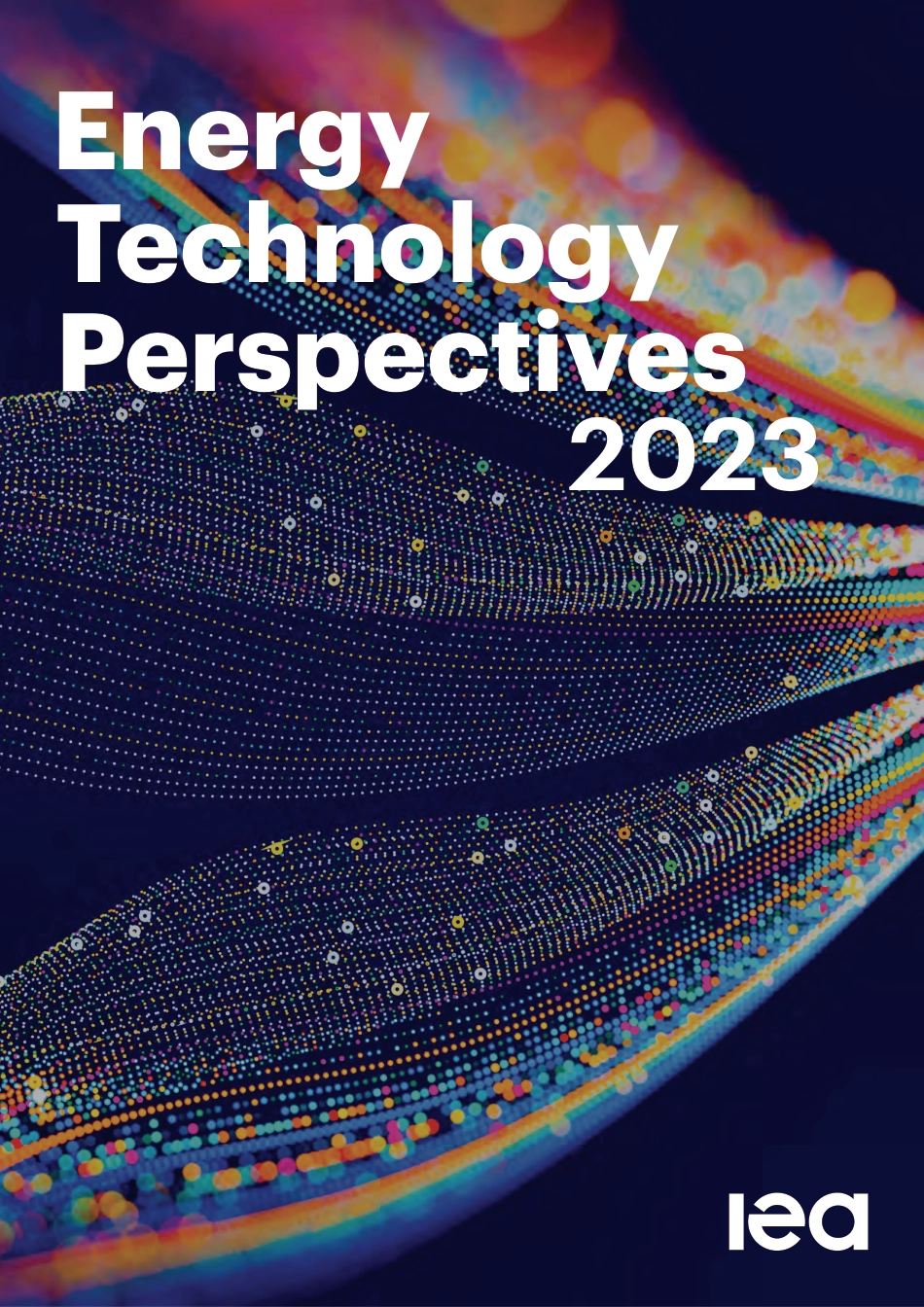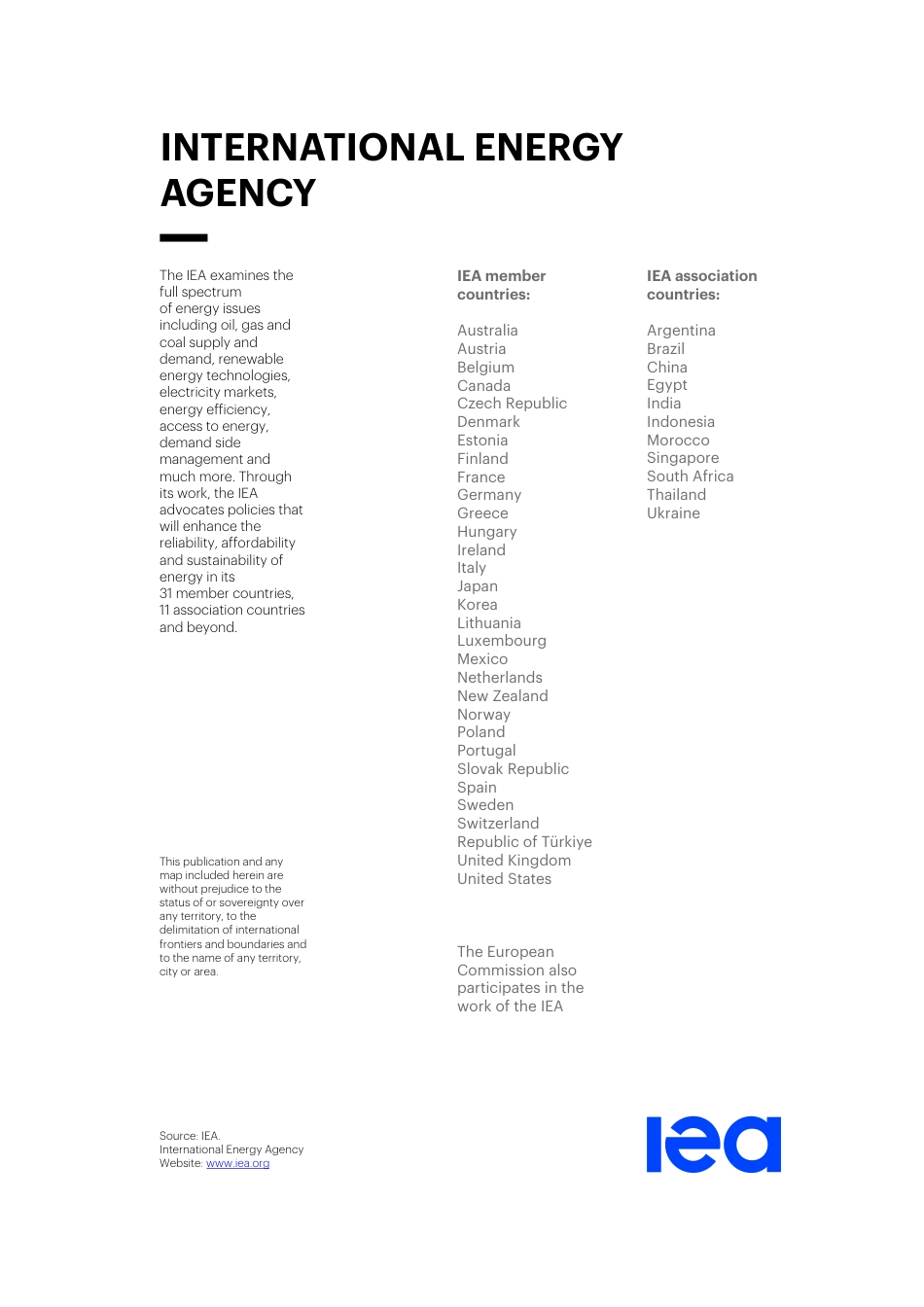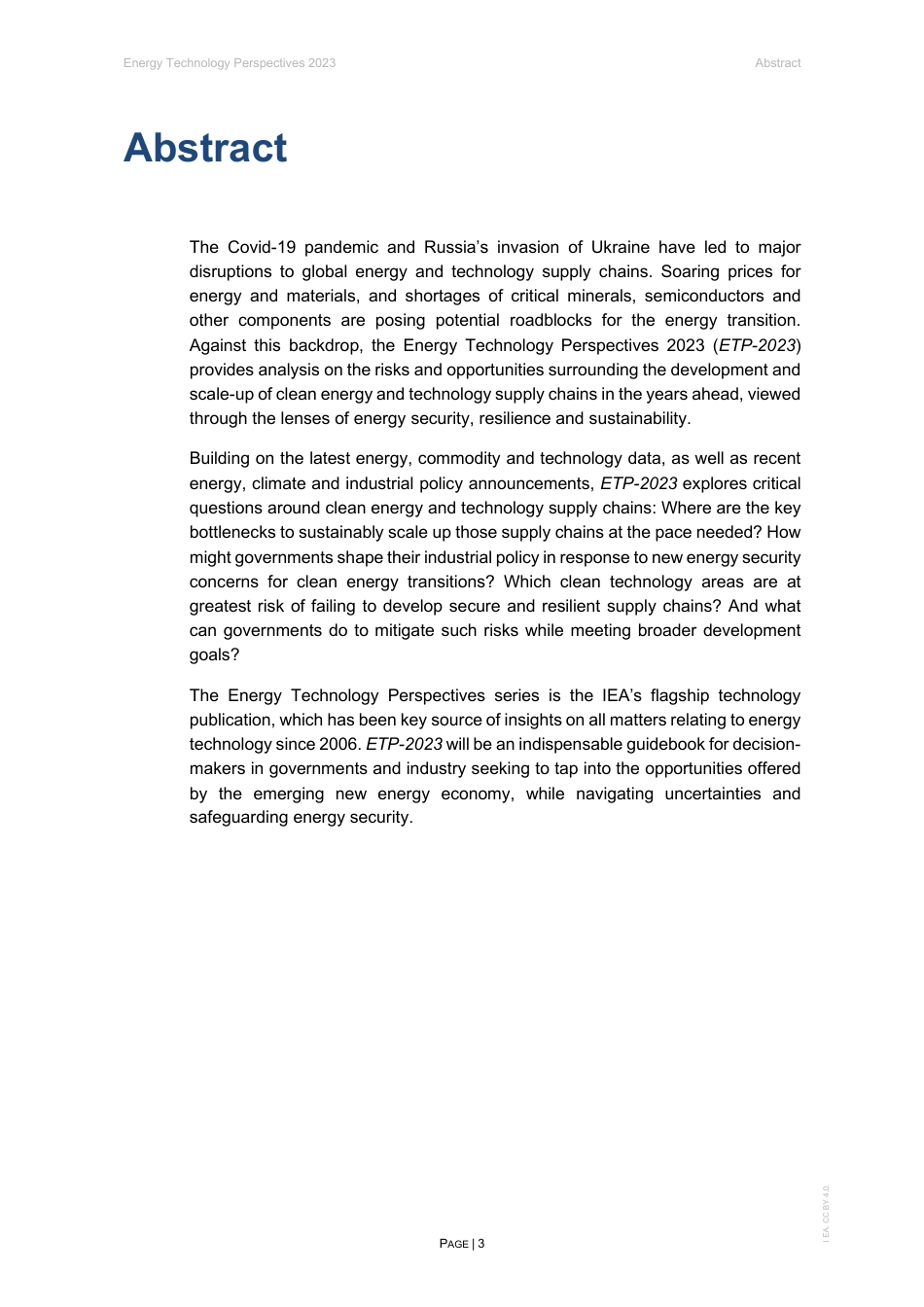TechnologyPerspectives2023EnergyThe IEA examines the full spectrum of energy issues including oil, gas and coal supply and demand, renewable energy technologies, electricity markets, energy efficiency, access to energy, demand side management and much more. Through its work, the IEA advocates policies that will enhance the reliability, affordability and sustainability of energy in its 31 member countries, 11 association countries and beyond.This publication and any map included herein are without prejudice to the status of or sovereignty over any territory, to the delimitation of international frontiers and boundaries and to the name of any territory, city or area.Source: IEA. International Energy Agency Website: www.iea.orgIEA member countries: AustraliaAustriaBelgiumCanadaCzech RepublicDenmarkEstoniaFinlandFranceGermanyGreeceHungaryIrelandItalyJapanKoreaLithuaniaLuxembourgMexicoNetherlandsNew ZealandNorwayPolandPortugalSlovak RepublicSpainSwedenSwitzerlandRepublic of TürkiyeUnited KingdomUnited StatesThe European Commission also participates in the work of the IEAIEA association countries:ArgentinaBrazilChinaEgyptIndiaIndonesiaMoroccoSingaporeSouth AfricaThailandUkraineINTERNATIONAL ENERGYAGENCYEnergy Technology Perspectives 2023 Abstract PAGE | 3 I EA. CC BY 4.0. Abstract The Covid-19 pandemic and Russia’s invasion of Ukraine have led to major disruptions to global energy and technology supply chains. Soaring prices for energy and materials, and shortages of critical minerals, semiconductors and other components are posing potential roadblocks for the energy transition. Against this backdrop, the Energy Technology Perspectives 2023 (ETP-2023) provides analysis on the risks and opportunities surrounding the development and scale-up of clean energy and tech...



